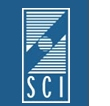 |
|

Editor's Note: The alignment of curriculum with state requirements is an important concern for many IPS users because IPS covers only a fraction of the topics on the tests. This article and How our Students Succeed on State Tests demonstrates that IPS students are not penalized on state tests.
One
Community's Response to
State-Mandated Testing
Judith Boroschek - Director of Curriculum and Instruction
Wellesley Public Schools, Wellesley, MA
In 1995 the Massachusetts Department of Education issued a K-12 curriculum framework that would have required the Town of Wellesley, to dismantle its sequence of courses and curriculum framework for K-12 science. The Wellesley sequence had been carefully built after three years of study and review of national model programs, including Introductory Physical Science (IPS) and Middle School Life Science. Those of us who helped develop the sequence knew that statewide standardized testing on the state's curriculum framework would begin in three years. Despite this, we decided to continue with the courses and framework we had devised.
Now it is nine years and six testing cycles later. We continue to refine our curriculum and instruction as needed, based on the experience of our teachers, department heads, and principals. However, Wellesley's core science curriculum and content sequence has remained basically the same. At the middle-school level (grades 6-8), Wellesley is approximately 50% in alignment with the state's framework. We offer no earth science or technology courses, and the only biology taught is a full-year study of human body systems. The state test at this level assesses earth science, physical sciences, biology, and technology in equal proportions. Nevertheless, Wellesley Middle School consistently scores in the top 10% on the state science test.
While choosing to go our own way in K-12 science, we have taken a series of steps to ensure that the community has confidence that children are receiving a high-quality education. Teachers and department heads strive to provide the best science instruction possible. Based on parent surveys, students report enthusiasm for science.
The parent and voting community is kept well informed about the science curriculum and our decision not to fully align with the state framework. Presentations on improvements in science teaching and curriculum are made periodically at school committee and parent meetings. Results of presentations to the school committee are well covered by the local press.
We have been very public about exposing the serious flaws in the state science tests, presenting at the school committee and writing letters to state officials. There are obvious science errors in some of the questions, and many items are simple recall of facts from the history of science.
Although we point out the striking weakness of the state science exams, we do not dismiss all state testing. Periodically we have studied the state's literacy and mathematics tests and have found them to be adequate tests of high and appropriate expectations. We expect that 80% of our students should score at the Advanced or Proficient level. In the last three years, we have met or exceeded our standard in literacy at all tested levels.
By reviewing the test questions released by the state a year after tests are administered, parents and other interested community members can judge for themselves that the literacy and mathematics tests are challenging and appropriate. Also, the scientists and scientifically-literate members among our community have an opportunity to convince themselves that the science tests are neither accurate nor appropriate assessments of scientific thinking and conceptual understanding.
In conclusion, I
think it is important for me to re-affirm that I am a supporter of statewide
assessment of science, especially at the elementary level. Tests are necessary
to help elementary teachers and principals keep a priority and focus on
science learning. I will continue to support the development of science
assessments at these levels that are sound tests of students' conceptual
understanding and scientific reasoning. Until such time as this occurs,
however, we in Wellesley will continue to go our own way in science.